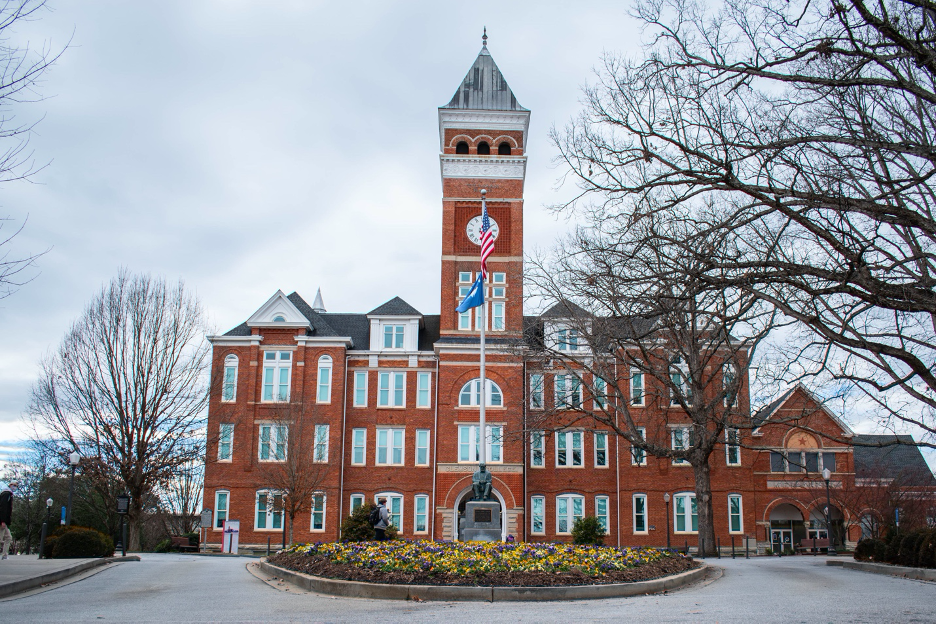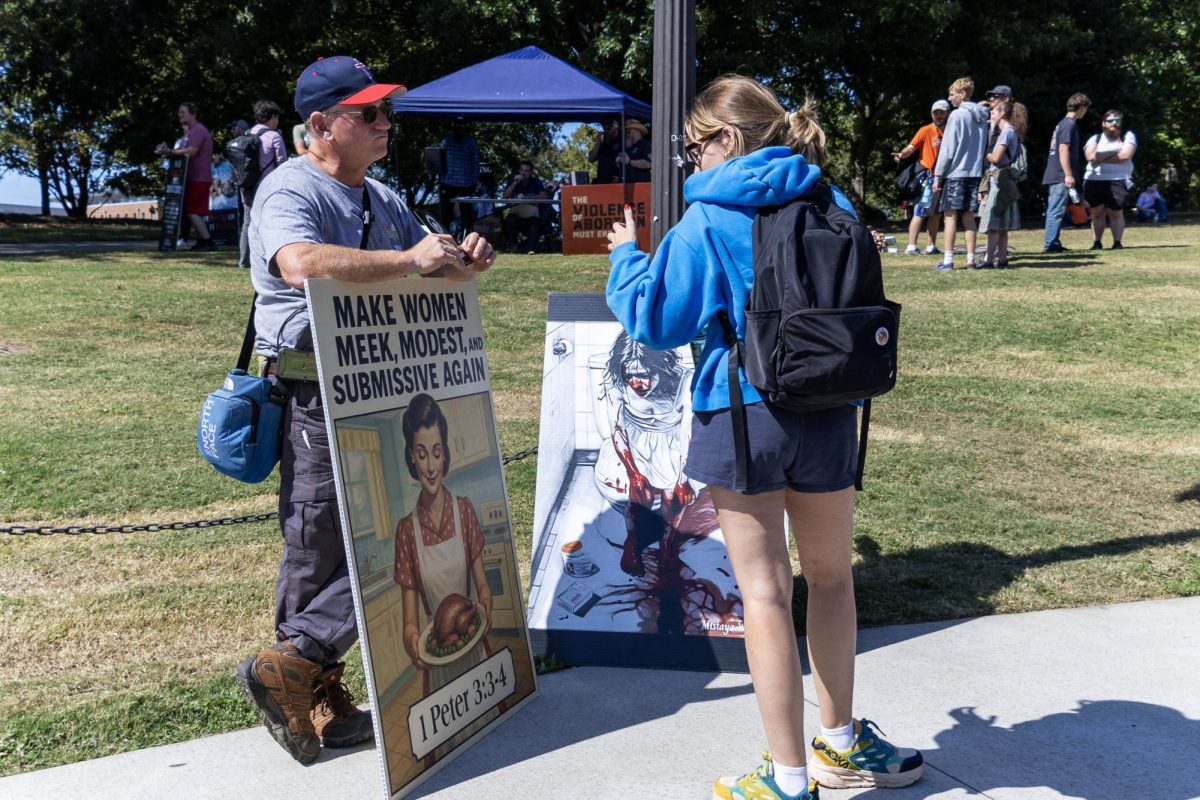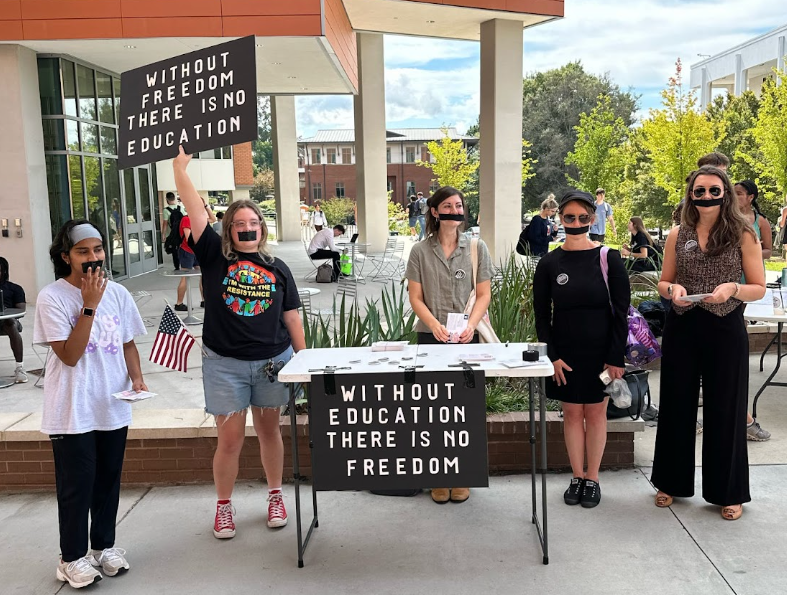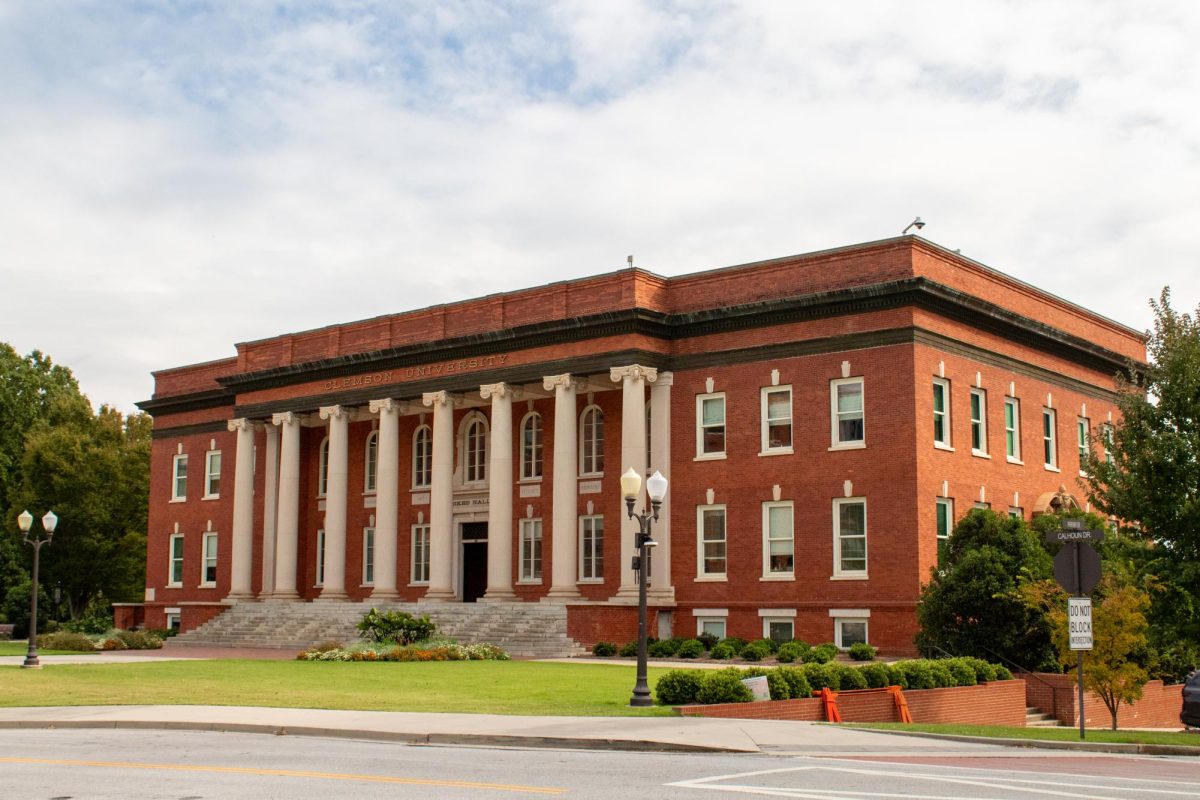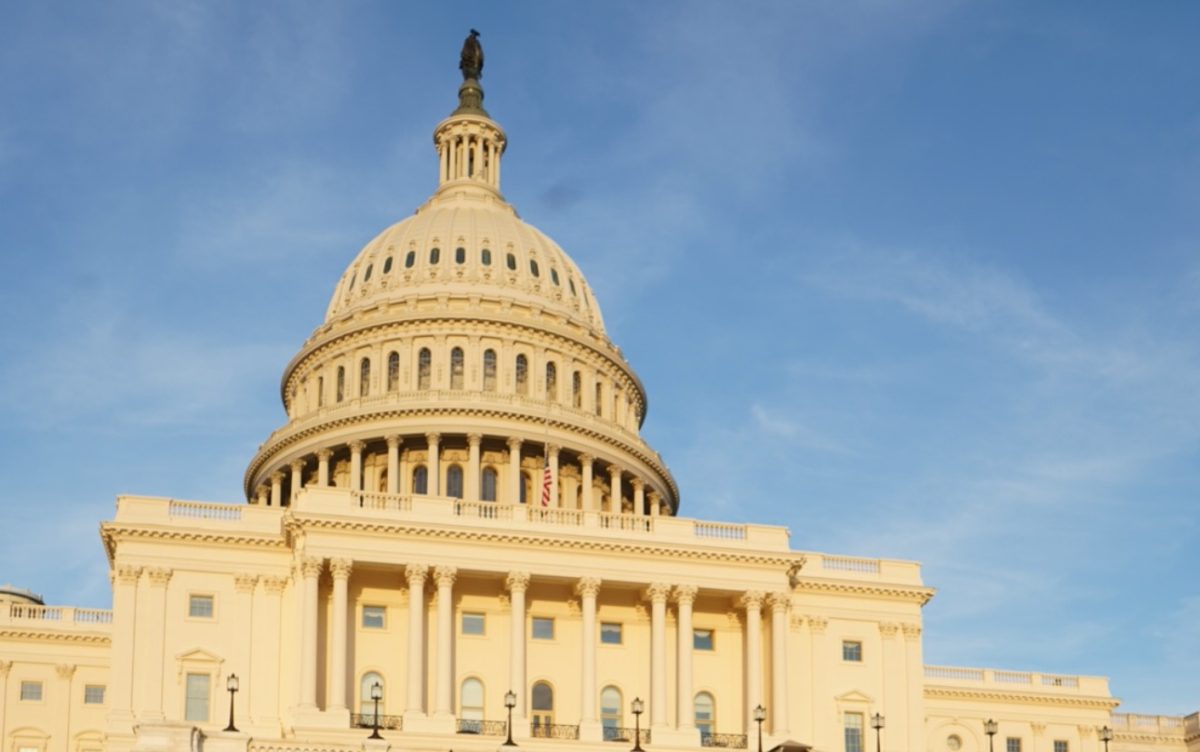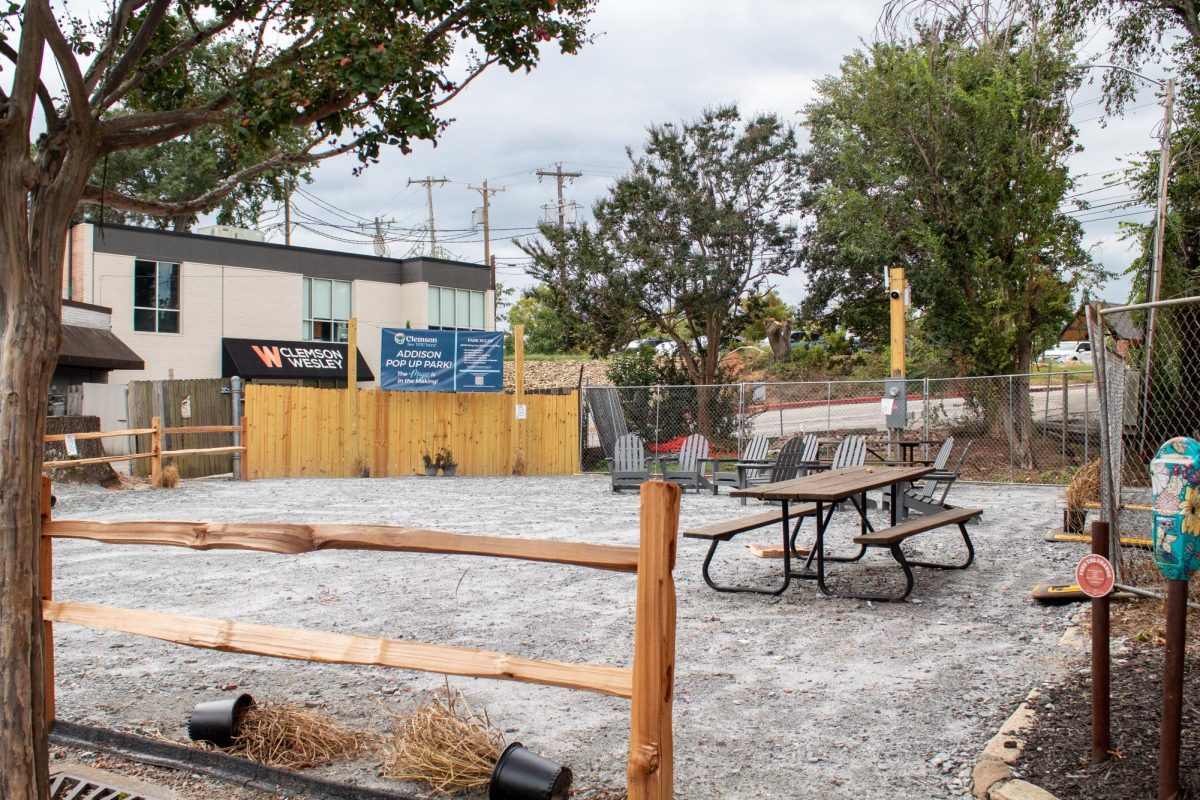Shakura Tanner, a Clemson senior history major, gazes at the name on the bell tower above the university’s historic Tillman Hall.
She feels anger every time she thinks about the building’s namesake, former South Carolina Gov. Ben “Pitchfork” Tillman, one of the most radical white supremacists in U.S. history.
When the bells begin to play, Tanner begins to speak.
“I didn’t know about Tillman before I came to Clemson,” she says. “I especially didn’t know about him being in the Red Shirts, or how extreme his racism was even by standards back then. Clemson has been a good experience so far, but they haven’t been as inclusive as I would want them to be, and knowing what I know about the history, it makes sense.”
The growing outrage over systemic racism in recent years has led college students and activists around the country to demand name changes for campus buildings like Tillman Hall. The movement was inspired in part by specific incidents – the killing of nine African Americans at Emanuel AME Church in Charleston in 2015 and the death of George Floyd in 2020.
Clemson’s Board of Trustees changed the name of the Clemson University Honors College in 2020 to exclude the name of John C. Calhoun, previous United States vice president, senator, defender of slavery and slave owner.
Immediately following the renaming of the Honors College, the Clemson Board of Trustees unanimously sent a request to rename Tillman Hall. However, renaming Tillman Hall is not as simple as renaming the Honors College. To change the name of Tillman Hall requires an amendment or repeal of the state’s Heritage Act of 2000 by two-thirds vote in each house of the General Assembly.
“Whether we like it or not, Tillman forces us to take an objective look at our history, both positive and negative aspects,” says Rod Andrew, Clemson history professor.
Many Republicans, especially in the Upstate area of South Carolina, are against amending the Heritage Act and changing the name of Tillman Hall.
“Changing the name of a stack of bricks and mortar is at the bottom of my to-do list,” tweeted State Senator Harvey Peeler, a Republican from Gaffney, South Carolina.
Clemson philosophy professor Kelly Smith thinks Tillman Hall is much more than just the structure. He’s been fighting for the name change since the 2015 Charleston church massacre.
Smith says he understands the “southern pride” sentiment. His family has been rooted in the south for many generations and many of his ancestors fought for the Confederacy. Despite his family history, he was part of many of Clemson faculty who signed an Open Forum about the building’s name change back in 2015 after the Charleston church shooting. In response to the Open Forum, the Chairman of the Clemson Board of Trustees at the time, David Wilkins, stated that the trustees had no plans to change the name.
“While I understand and even sympathize to some extent with those who want to preserve their heritage, Tillman is not the heritage they should want to preserve, at least outside of a museum,” says Smith.
Smith also suggests that having Tillman’s name on a building creates an uncomfortable atmosphere for students and faculty of color. “If I was a minority who had to take classes or teach in the building, it would bother me every day.”
Michael LeMahieu, an English professor at Clemson who worked with Clemson honors students to rename the Honors College, also objects to Peeler’s statements. “I would encourage him to remove it from his to-do list entirely. Repeal the Heritage Act. Let Clemson University decide how to name its own stacks of bricks and mortar. And I would add that to say that names have symbolic importance is not to diminish their significance but to accentuate it,” says LeMahieu in an interview conducted over Zoom.
While he was a radical racist, “Pitchfork” Benjamin Ryan Tillman played a significant role in the development of Clemson University. “Whether we like it or not, Tillman forces us to take an objective look at our history, both positive and negative aspects,” says Rod Andrew, a history professor at Clemson with a doctorate in history and a specialization in the American south.
“Tillman, of course, represents this wave of aggressive racism that swept the south after 1890,” says Andrew. “That whole period from 1890 to 1920 is sometimes called the ‘Golden Age of Racism.”
“The whites have absolute control of the government, and we intend at any hazard to retain it,” Tillman said in 1890 during his South Carolina governorship. This example of Tillman’s radical views and others are found in Orville Vernon Burton’s book ‘The Black Squint of the Law: Racism in South Carolina.” Burton, a Clemson history professor, also says that Tillman enforced a law that effectively eliminated Black local officials in South Carolina.
During Tillman’s time as governor, lynchings of Black citizens in America rose, and while he initially spoke out against lynchings in his first term, he defended them in his second term and stated he would lead a lynch mob himself under certain circumstances.
While Tillman was obviously a controversial figure, Andrew points out that Tillman was an important figure in the history of Clemson and South Carolina.
“You can also connect him to what was called the Progressive Movement back then, which was all about using the power of the state, the power of the government to bring about reforms to help the so-called ‘common man.’, explained Andrew. Tillman was also a leader of the democratization of education, which is a large reason why Clemson University and Winthrop College exist today.
Sen. Peeler is not the only South Carolina politician hesitant to the renaming decision of Tillman, and it seems that the decision is not moving forward any time soon. Representative Neal Collins of Easley, a Republican representing district 5, said in a phone call that he hadn’t heard anything new about the decision at all. Sen. Rex Rice, a Republican representing district 2, said in a phone call that he “hadn’t heard anything new,” but that he “supports the Heritage Act” and “doesn’t intend on changing it.”
On the benches in front of Tillman Hall, Tanner once again turns around and stares at the building, envisioning a different name instead of the one that has been there for years.
“It would be nice for them to name it after one of the real founders, the convict laborers who built this campus, or a descendent of them,” she says. “Regardless, I think the renaming is essential; it will show that there’s significance in doing things the legal way instead of taking things into your own hands. I think it’ll also give people hope. It might seem insignificant to people who don’t care, but it would definitely give me hope.”
Tillman Hall awaits renaming decision
Emily Rose Campbell, Copy Editor
June 7, 2021
0
Donate to The Tiger
Your donation will support the student journalists of Clemson University. Your contribution will allow us to purchase equipment and cover our annual website hosting costs.
More to Discover



